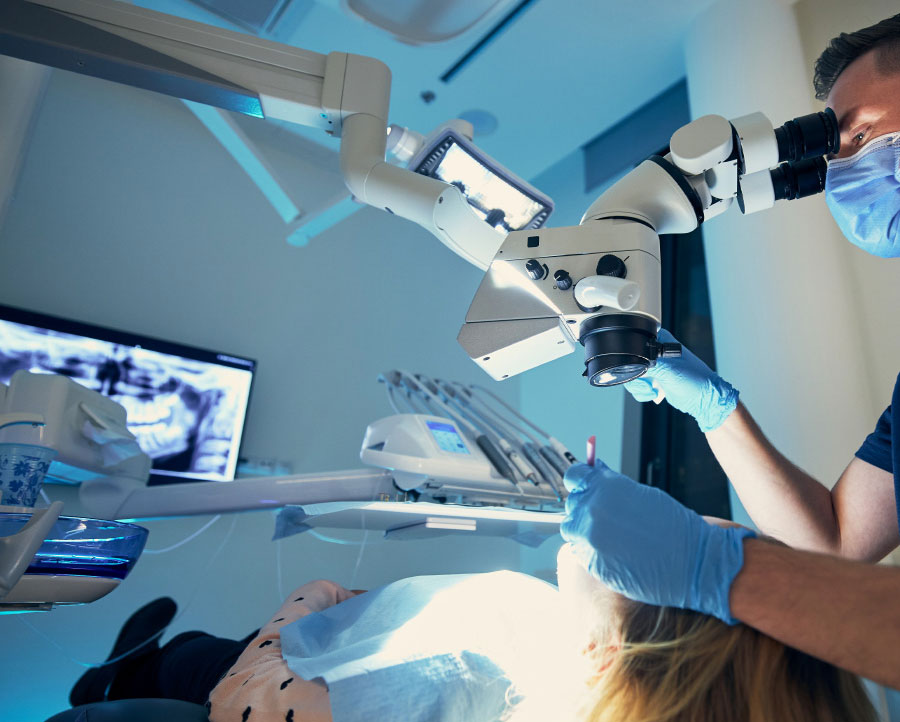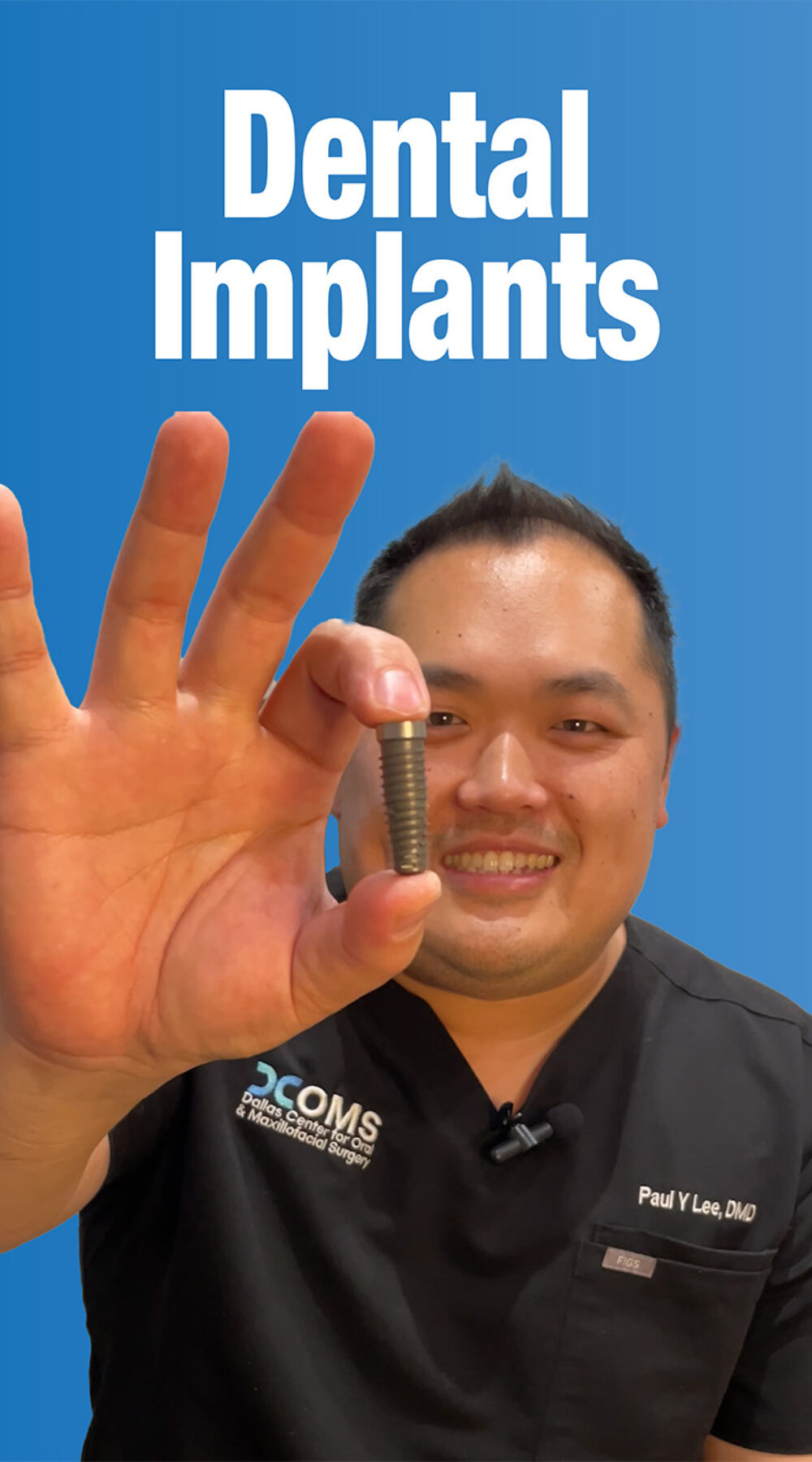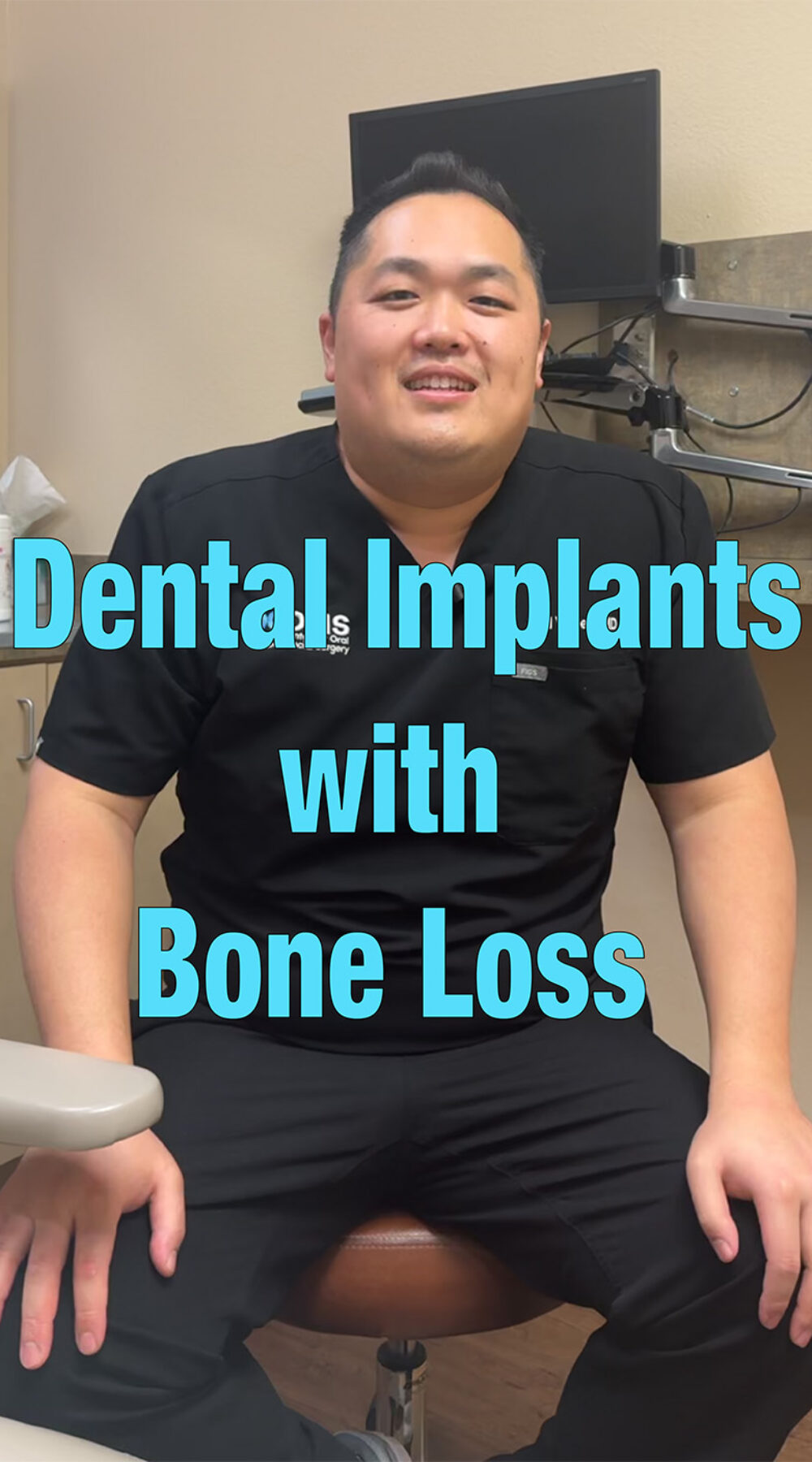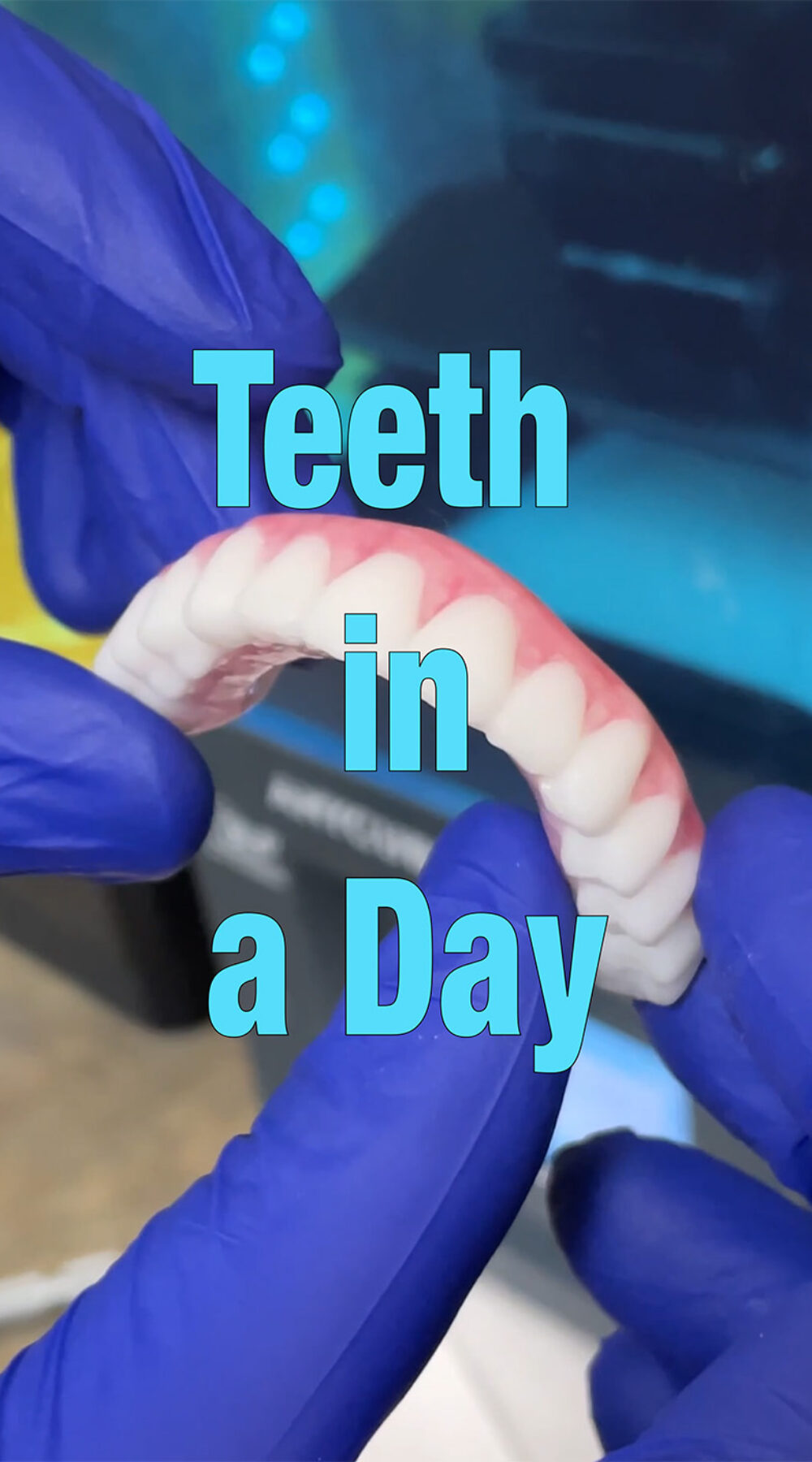Dallas Center for Oral & Maxillofacial Surgery
Dental Implants
At Dallas Center for Oral & Maxillofacial Surgery, we offer several implant-related treatments to replace one or more missing teeth, and our specialists have been providing 5-star rated dental implant procedures in the Dallas and Plano area for nearly 30 years.


We specialize in implant treatment because we believe that dental implants are the ideal solution for tooth loss.
-
A dental implant is a titanium screw that we surgically embed deep into the jawbone. Once the implant is in place, it will slowly fuse to your jaw through the process of osseointegration. After a brief healing period, the implant screw will be able to support a restoration against the strongest forces of your bite. Dental implants can be used to support a single crown, a partial bridge, and a full-arch restoration.
Read more about the history of dental implants.
-
Dental implants are the next best thing to your natural teeth. This makes implants a more convenient, durable, secure, and aesthetically pleasing option over traditional restorations. The numerous benefits of dental implants have made them the industry standard for tooth replacement!
Read more about the benefits of dental implants.
-
Dental implant surgery and recovery can take up to a year to complete. Although the time in the dentist’s chair is relatively short, a lengthy healing time is required in the middle of the process. Dental implants are prosthetic teeth that are permanently fixed into a patient’s jaw to replace missing or damaged teeth. These implants consist of an artificial root made of titanium and a ceramic or porcelain crown fitted on top. At Dallas Center for Oral & Maxillofacial Surgery our dentists Dr. Gannon, Dr. Lee and Dr. Sherry are the best at making sure your dental implant sessions do not take more time than necessary. They will keep you informed every step of the way, making sure you are comfortable throughout the entire process.
-
We offer the All-on-4 treatment concept for patients missing all or most of their teeth. As the name suggests, this full-arch restoration only uses four implants to support the entire bridge. The posterior (back) implants are placed at an angle to utilize the strongest part of the jawbone. Other full-arch restorations usually require six to eight implants. Thanks to the revolutionary new technique, All-on-4 is much more effective and minimally-invasive than other options.
-
Dentures and dental implants will often serve the same purposes, which are, to help in chewing foods that would otherwise be difficult to consume, assist in the support of facial muscles, and enhance your speech, boost self-esteem and provide a better smile. There are, however, significant differences between dental implants and dentures. Therefore, before you make that big decision, here are important points to note to ensure that you choose the best dental solution at Dallas Center for Oral & Maxillofacial Surgery.
-
An implant-supported denture is similar to All-on-4 but usually requires more implants. We may recommend an implant-supported denture if you want a better alternative to traditional dentures. A traditional denture is a removable appliance that rests on the gums. Because it is not secured by implants, many patients experience difficulty eating, discomfort, and even embarrassing slips.
-
If you are in good oral and overall health, you should qualify for dental implant treatment. If you have experienced significant bone deterioration due to tooth loss, you may need a bone graft first. During your consultation, Dr. Gannon, Dr. Lee and Dr. Sherry will be able to determine if implants are right for you. This usually involves a series of diagnostic tests that may include digital x-rays and CBCT scans.
-
We believe patient education is the cornerstone of good oral health. During your initial appointment, Dr. Gannon, Dr. Lee and Dr. Sherry will be happy to answer any questions you have regarding dental implants. This is also an excellent opportunity for you to voice any concerns. Staying informed can help you better maintain your restoration and prevent potential problems.
-
Many patients need a bone graft, or ridge augmentation before implantation is possible. Osseointegration, the process responsible for the many benefits of dental implants, requires an adequate amount of bone in the jaw. If osseointegration does not occur, implant failure is virtually guaranteed. Fortunately, we offer ridge augmentation to improve the quantity and quality of deteriorated bone. In many ways, ride augmentation allows patients to receive dental implants when it would otherwise be impossible.

Patient Feedback
Read More Feedback >



